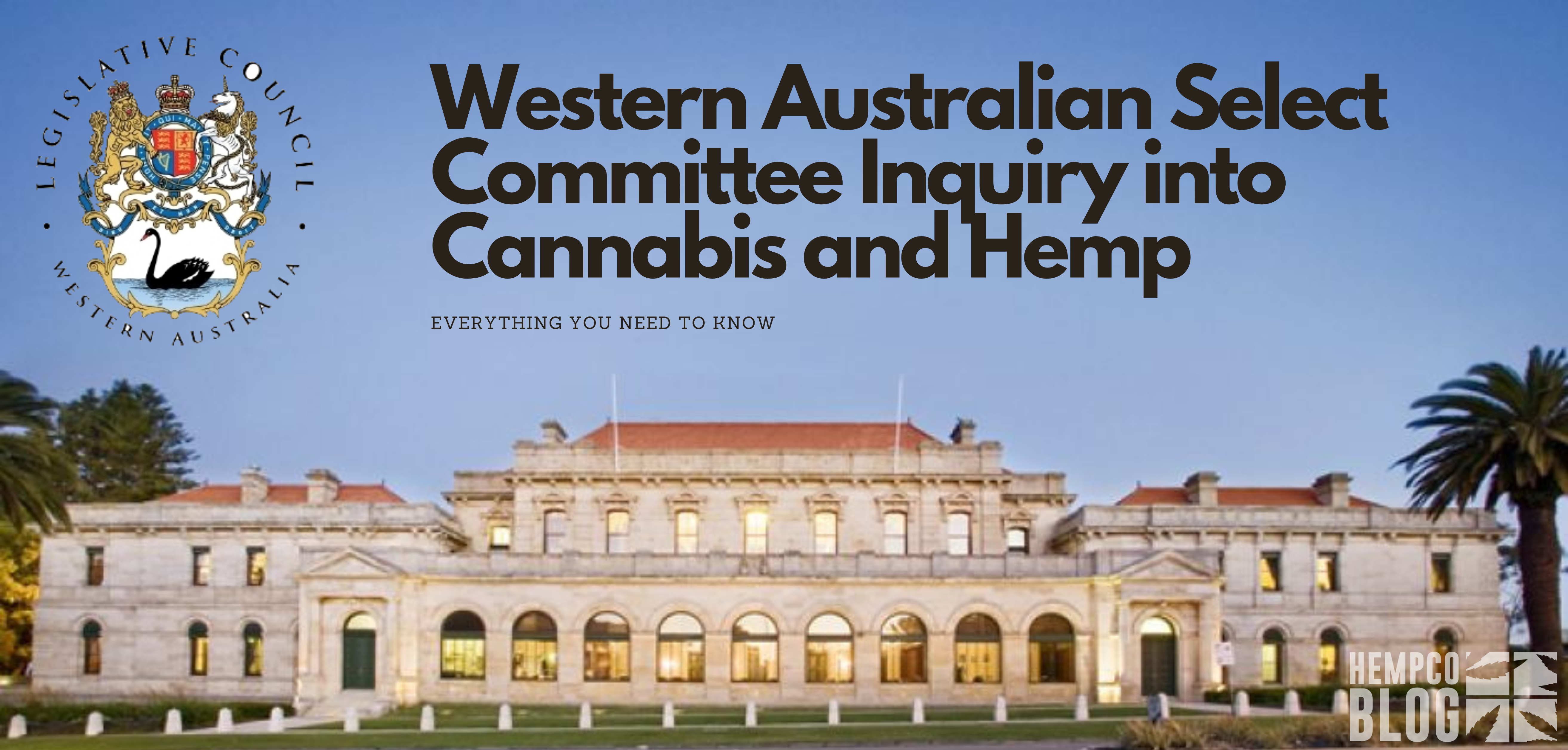
A committee was selected for the Parliament of Western Australia to oversee the issue. At the end of March, the committee heard over a dozen submissions over four days after opening the inquiry in November of 2021 and receiving close to 100 public submissions!
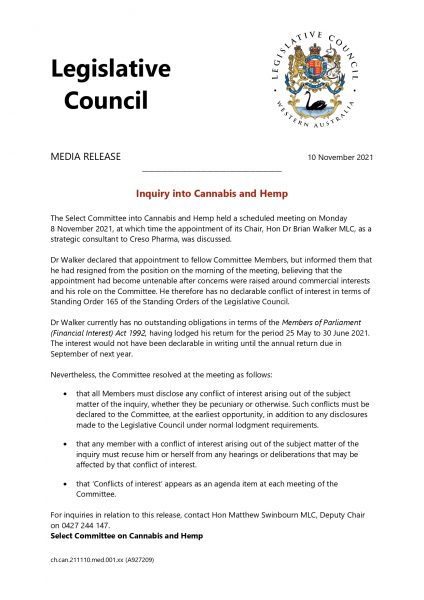
It is the beginning of a new era for hemp & cannabis in West Australia. In this article, we will give you the highlights and access to view all submissions and videos from the hearings (including transcripts). Let's dive in!
Margaret River Hemp Co. has been growing hemp since 2016. They point out that although hemp has been legalized in Australia, no product containing CBD has been approved by the Australian Register of Therapeutic Goods (ARTG). ARTG is tasked with evaluating substances to guarantee their quality.
Therefore, CBD products cannot be sold by the pharmacist because they are no guarantee of their safety, efficacy, contaminants, and other factors. As a result, one of the largest Australian CBD companies had to move to the United States to expand its CBD business.
The petition is to allow Licensed Industrial Hemp growers with the legal limit of 1% THC to use the whole plant that they are legally allowed to grow. Additionally, hemp products(leaf and flower) from Industrial hemp as a food, nutraceutical, and topical should be produced in a food grade or Good Manufacturing Practice Facility.
This can be achieved by cultivating and processing industrial hemp and selling them to a licensed medicinal company in Australia or by exporting them.
The Australian economy will greatly benefit from this endeavour:
They highlighted the importance of hemp to the environment. “one hectare of industrial hemp can absorb 15 tonnes of CO2 per hectare. The rapid growth of the hemp plant makes it one of the fastest CO2-to-biomass conversion tools available, even more, efficient than agroforestry.”
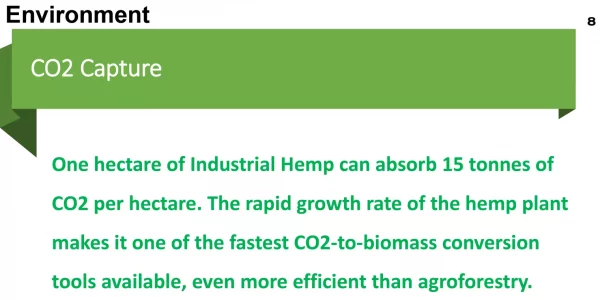
According to statistics provided, the hemp market is expected to experience an exponential increase. According to the global state of hemp report, “The hemp industry is expected to grow with a combined annual growth rate (CAGR) of 18% from 18% to 2022 to become a $2.5 Billion industry.”
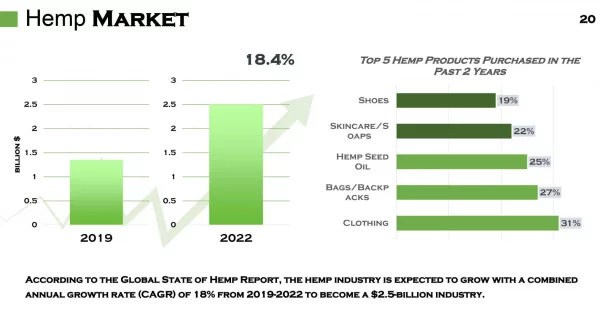
Another important of hemp farming is that the waste products are useful and do not constitute environmental hazards. Hemp biomass may be what is left of the plant after its main part has been utilized. It is then sold, which is a source of additional income.
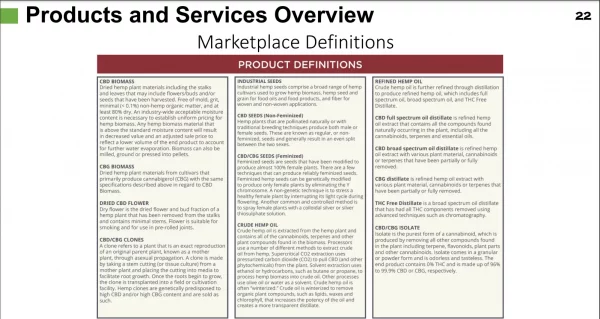
They also mentioned that: “Hemp produces 250% more fiber than cotton and 600% more fiber than flax in the same land and has the highest yield per acre of any natural fiber.”
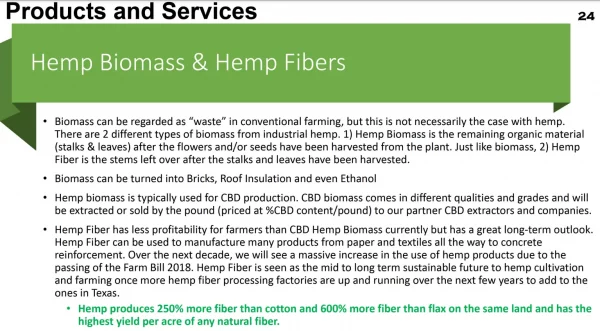
The Australian Industrial Hemp Alliance was established in 2015 as the national body representing state organizations and hemp businesses. We aim to grow the Australian hemp industry and make it a world leader.
They believe that Australia can become a world leader because it is home to half of its certified organic farmland. They stated that the industry would grow bigger if the whole hemp plant were utilized. For the past 16 years, the organization has not fulfilled its goals.
This was because the government thought it would only produce false-positive roadside drug tests, which would confuse the public about the illicit use of cannabis. Since legalization in 2017, they point out that there has been no such disruption and no negative outcomes. This leaves us to wonder: what then is the government’s excuse?
They highlighted the expansion of the cannabis industry and its diversification into cosmetics, food, medicine, and other areas. With the many uses of cannabis, the line between its industrial, natural, and therapeutic uses becomes blurred.
Many pro-hemp individuals believe that there needs to be reform in reducing the restrictions on using low THC hemp for human food, nutraceuticals, and stock feed. Therefore, a study is ongoing to reveal the THC residues in animal products. The result will inform the decisions of Poison Act and FANZ.
The goal of submission of an inquiry by MS Australia was to bring to the Parliament’s notice the benefits of cannabis to individuals with Multiple Sclerosis. First, “there are currently 25,600 people living with MS across the country, and this number is increasing.”
They described MS as life-changing. In 2004, an international survey of over 2,500 people with MS was conducted by Australian researchers. The results indicated that around 10% of people with MS believed that medicinal cannabis was a factor that could help improve their MS symptoms.
Also, research has shown that medicinal cannabis can be useful to treat some of the symptoms of MS in some people. Additionally, Human trials using medicinal cannabis to treat muscle spasticity have produced positive results overall.
It reduced the frequency of spasms and pain associated with spasms, suggesting that medicinal cannabis can be effective for treating spasticity. They also submitted testimony from an MS patient who lives in the UK and uses a vape medipen with a THC content of less than 2%.
With all the benefits mentioned above, they desire “changes to the regulatory framework to make medicinal cannabis products more easily accessible, affordable and better understood.”
United in Compassion was formed in 2014 by Lucy Haslam, who had a son with stage 4 bowel cancer. They have ever since advocated for access to medicinal cannabis, useful for patients who no longer respond to conventional pain therapy.
She says that: “From the moment Dan tried cannabis we could not ignore the benefits it immediately gave him and in his final year of life, he enjoyed a quality of life that he had lost due to the progression of his disease and the treatments.”
It required getting lots of approval for the use of medical cannabis. After many petitions for hemp, the government put cannabis medicines firmly in the camp of unapproved compounds. As a result, patient access to the substance is restricted.
People are subjected to more pain and suffering throughout the lengthy process of getting proper approval. As a result, many people have to rely on the black market to get it at an expensive price. UIC believes this should not be the case.
The submission from AgriFutures was to emphasize the benefits of industrial hemp. They listed the importance of hemp to farmers; carbon sequestration, improving soil, natural pest and disease control, and more.
Industrial hemp farming should also be encouraged because they are a complete source of protein and an alternative to nut milk. Additionally, hemp is a sustainable plant that produces minimal waste, is fast-growing, and uses little soil resources.
So, if the Australian government is mindful of the planet, they will come to terms with the unique benefits of hemp.
Applications from A1236 - Low-THC hemp leaf, seed sprout, and root as food and food ingredients
This application aims to seek approval to sell low-THC hemp leaf, seed sprout, and root as food and food ingredients in Australia and New Zealand. This could open many doors, reduce the stigma on cannabis use and boost the economy.
The world’s notion of hemp & cannabis is fast changing. There are numerous possibilities with industrial hemp.
For example, let us examine the state of cannabis in Thailand. Products with less than 0.2% THC have been completely legalized. As a result, the local economy of food and CBD products is booming. Initially, Thai families can grow six plants at home.
However, the Thai health minister has recently declared that; You can grow “as many cannabis plants as you like” at home in Thailand from June 9.”
The Rustic & blue 12-course infusion event is a great example of what's possible with an open market. There will be a 12-course dinner featuring cannabis/hemp infusions matched with cocktails.

Just imagine what we'll be able to achieve in Australia once our laws catch up with the time. With such an amazing cafe culture in Australia already, we would love to see what innovations and leaps forward this industry could see (not to mention creating local jobs in farming, retail, hospitality, travel etc… - helping boost local economies).

The therapeutic benefits of hemp are glaring. The citizens of WA and its economy will enjoy the promises of hemp. In a city like Fremantle or Melbourne with an existing café culture, the inclusion of industrial hemp will help boost the local economy.
I hope the committee considers the unique environmental and therapeutic advantages of cannabis. No patient who needs it should be shunned. Instead, they should be allowed easy access to medicinal hemp for their health.